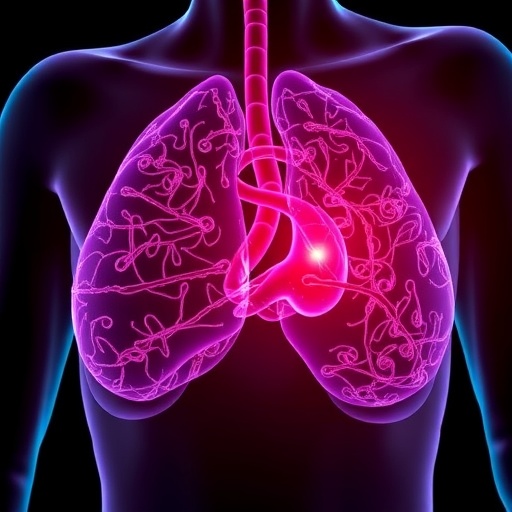In the complex battle against cancer, a new frontier is emerging that pivots away from traditional focuses on genetic mutations and signaling pathways, orienting instead toward the intricate metabolic underpinnings that enable malignant cells to spread with lethal efficiency. Recently, a landmark study by researchers at Rockefeller University has unveiled the crucial role played by a specific mitochondrial metabolite—glutathione—in breast cancer metastasis. This discovery illuminates a previously obscure connection between the subcellular metabolic environment and the ability of cancer cells to dissociate from primary tumors, traverse the body, and initiate secondary growths in distant organs such as the lung.
Mitochondria, long celebrated as the cell’s “powerhouses” because of their role in energy production, are revealing themselves to be far more integral to cancer biology than once appreciated. Beyond generating ATP, mitochondria regulate diverse metabolic activities, and their function in metastasis—a process directly responsible for the majority of cancer fatalities—has remained elusive until now. The new study meticulously delineates how mitochondrial metabolites, rather than generic shifts in cellular metabolism, orchestrate the complex adaptations required for metastatic competence.
Metastasis involves a cascade of biological challenges for cancer cells, including detachment from the primary tumor, survival in the circulatory system, and colonization of remote tissues with different microenvironments. Previous research has highlighted the involvement of metabolites such as lactate, pyruvate, glutamine, and serine in supporting specific phases of this cascade. Nevertheless, the precise mitochondrial contributors to metastatic success remained unidentified because of the vast repertoire of thousands of metabolites within this organelle and the lack of technologies capable of resolving their localized impact.
.adsslot_WK2OGMghs3{ width:728px !important; height:90px !important; }
@media (max-width:1199px) { .adsslot_WK2OGMghs3{ width:468px !important; height:60px !important; } }
@media (max-width:767px) { .adsslot_WK2OGMghs3{ width:320px !important; height:50px !important; } }
ADVERTISEMENT
In an innovative methodological leap, Birsoy and his team employed advanced protein tagging techniques to discriminate cancer cells residing in the breast primary tumor from those that had migrated and settled in the lungs. Coupling this separation with spatial metabolomic analyses, the researchers could map and quantify metabolite distributions within mitochondria of metastatic versus primary tumor cells in situ. This unbiased approach was instrumental in singling out glutathione, a tripeptide antioxidant renowned for its role in mitigating oxidative stress, as dramatically elevated in metastatic cells.
Glutathione’s mitochondrial abundance, as visualized through high-resolution spatial metabolomic imaging, is not a mere epiphenomenon but a driver of metastatic advancement. The team pinpointed SLC25A39, a mitochondrial membrane transporter, as the essential conduit for importing glutathione into the mitochondria of cancer cells. Intriguingly, this transporter’s activity was indispensable for the sustained survival and colonization capacity of breast cancer cells in lung tissue, firmly linking metabolite transport dynamics at the organelle level with macroscopic disease progression.
Beyond its classical antioxidant function, glutathione gained a novel mechanistic identity in this metastatic context. Functional experiments engineered to decouple glutathione’s redox activity from its role in metastasis revealed that its contribution is not predominantly through neutralizing oxidative stress. Rather, glutathione acts as a signaling molecule that triggers activation of ATF4, a transcription factor driving cellular adaptation to hypoxic and metabolically hostile environments typical of emerging metastatic sites. This signaling axis is paramount in the early phases of metastatic colonization when cancer cells must rapidly recalibrate to survive outside their tissue of origin.
Remarkably, the researchers’ prior work had already uncovered SLC25A39 as the mitochondrial glutathione transporter and elucidated its function as a dynamic sensor adjusting mitochondrial glutathione levels. Leveraging these foundational insights allowed the current study to probe how modulating glutathione import influences cancer cell behavior during metastasis. This continuity not only underscores the importance of targeted metabolite transport but also exemplifies how stepwise research can translate molecular discoveries into potential clinical interventions.
The clinical implications of these findings are profound. Analysis of patient-derived breast cancer samples demonstrated that elevated SLC25A39 expression correlates strongly with metastatic disease to the lung and portends poorer survival outcomes. This correlation positions mitochondrial glutathione import as both a biomarker and a therapeutic target. Future drug development could focus on small molecules designed to selectively inhibit SLC25A39, thereby arresting metastasis with minimal disruption to other cellular processes or healthy tissues—a strategic refinement over broad-spectrum chemotherapy.
While the prospect of new targeted therapies is compelling, the research also punctuates the broader scientific necessity of investigating metabolic processes with subcellular precision. Traditional metabolomics often treats cells as homogenous entities, neglecting compartmentalization that can dramatically affect function. The discovery that a single metabolite’s mitochondrial import can govern metastatic fate reinforces the imperative to dissect metabolic dynamics within organelles to unravel their contributions to disease pathogenesis fully.
“This work is a paradigm shift,” notes lead investigator Kivanç Birsoy. “It’s not just the global changes in metabolite concentrations that matter but where within the cell these changes occur. Mitochondrial glutathione is a critical piece of the puzzle in understanding metastasis, and focusing on this level of compartmentalization could open new avenues in the fight against cancer.”
The findings propel cancer research into a nuanced era where metabolites and their intracellular trafficking become critical actors, shedding light on the biochemical vulnerabilities of metastatic cells. As technological innovations continue to refine spatial and functional metabolomics, the capacity to define organelle-specific metabolism will undoubtedly become integral in designing next-generation oncology therapeutics tailored to intercept cancer at its most pernicious stage—metastasis.
Subject of Research: The role of mitochondrial glutathione and its transporter SLC25A39 in breast cancer metastasis
Article Title: [Not specified]
News Publication Date: [Not specified]
Web References:
– DOI: 10.1158/2159-8290.CD-24-1556 (Cancer Discovery)
– Rockefeller University Laboratory of Metabolic Regulation and Genetics: https://birsoylab.rockefeller.edu/
– https://www.rockefeller.edu/our-scientists/heads-of-laboratories/1120-kivanc-birsoy/
Image Credits: Laboratory of Metabolic Regulation and Genetics/The Rockefeller University
Keywords: Breast cancer, metastasis, mitochondria, glutathione, SLC25A39, metabolic regulation, cancer biology, ATF4, mitochondrial transporter, spatial metabolomics
Tags: breast cancer metastasis mechanismscancer cell detachment processescombating cancer through metabolic pathwaysenergy production in cancer cellsmetabolic adaptations for metastasismetabolic regulation in cancer cellsmitochondria and cancer biologymitochondrial metabolites in cancernovel approaches to breast cancer treatmentrole of glutathione in breast cancersecondary tumor growth in distant organssurvival of cancer cells in circulation





